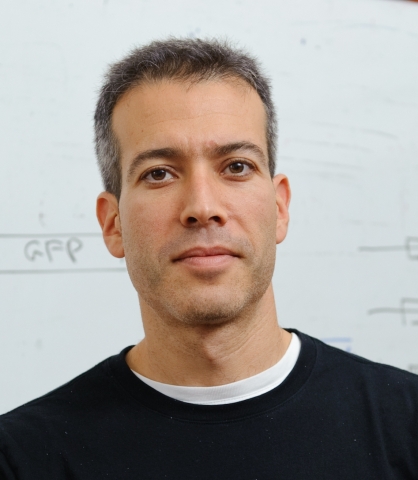Sweet news
Artificial intelligence advances the diagnosis of gestational diabetes
Briefs

A new algorithm developed by Weizmann Institute scientists can predict which pregnant women are at a high risk of gestational diabetes, a common condition in which women without diabetes develop high blood sugar levels. The study was authored by Prof. Eran Segal and reported in Nature Medicine.
The study analyzed data on nearly 600,000 pregnancies available from Israel’s largest health organization, Clalit Health Services. It determined that, based on the predictions offered by the algorithm on these data, it may be possible to prevent gestational diabetes using nutritional and lifestyle changes.
“Our ultimate goal is to help the health system take measures to prevent diabetes from occurring in pregnancy,” says senior author Prof. Segal, who has a dual appointment in the Department Computer Science and Applied Mathematics and the Department of Molecular Cell Biology. The study was done in collaboration with researchers at Rabin Medical Center in Petah Tikvah and Clalit.
Gestational diabetes is fraught with risks for both mother and baby. Typically, the condition is diagnosed in the second trimester, by way of a glucose tolerance test in which the woman drinks a glucose solution and then undergoes a blood test to see how quickly the glucose is cleared from her blood.
Prof. Segal and his colleagues processed a dataset of more than 2,000 parameters for each pregnancy, including each woman’s blood test results and medical history, and ran the data through an algorithm built to “connect the dots” between the medical data and the diagnosis. It revealed that nine of the parameters were sufficient to accurately identify the women who were at a high risk of developing gestational diabetes. The nine parameters include the woman’s age, body mass index, family history of diabetes, and results of her glucose tests during previous pregnancies (if any).
These findings suggest that by having a woman answer just nine questions, it should be possible to tell in advance whether she is at a high risk of developing gestational diabetes. And if this information is available early on—in the early stages of pregnancy or even before the woman has conceived—it might be possible to reduce her risk of acquiring the condition through lifestyle measures such as exercise and diet.
Meanwhile, women identified by the questionnaire as being at a low risk of gestational diabetes may be spared the cost and inconvenience of the glucose testing.
The study is another step forward in advancing artificial intelligence techniques for health—demonstrating the usefulness of large human-based datasets, specifically electronic health records, for deriving personalized disease predictions that can lead to prevention and intervention.
Prof. Eran Segal is head of the Crown Human Genome Center at the Weizmann Institute of Science. His research is supported by the Larson Charitable Foundation New Scientist Fund; the Else Kroener Fresenius Foundation; the Adelis Foundation; Ms. Judith Benattar; Ms. Aliza Moussaieff; the Fannie Sherr Fund; the estate of Zvia Zeroni and the European Research Council.

Prof. Eran Segal







